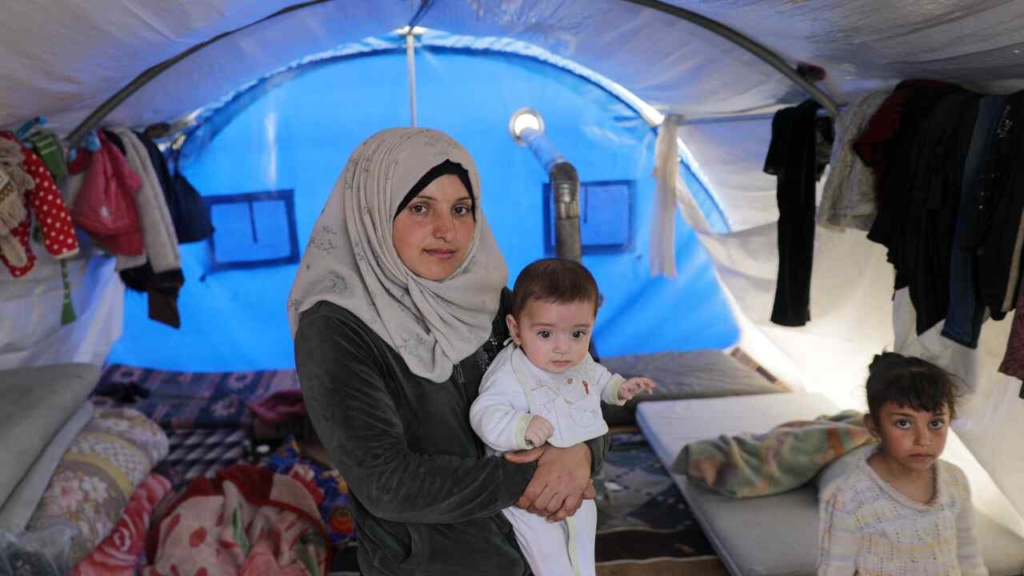What still needs to be done?
Over a decade has forced more than half of all Syrians from their homes, making Syria the world’s largest displacement crisis. It has also left the country on the brink of economic collapse, with 75% of the population unable to meet their most basic needs.
“Many in northwest Syria have been displaced up to 20 times and with health facilities strained beyond capacity, even before this tragedy many did not have access to the health care they critically need,” says Tanya Evans, following the February earthquake.
The IRC’s work here is now more critical than ever. We pledge to put the needs of those most affected by the crisis at the forefront of our efforts and to achieve measurable improvements in safety, health and economic well-being.
We will continue to support uprooted Syrians and host communities, with a particular focus on women and children. The IRC is committed to reaching the most vulnerable and hard-to-access areas throughout the country.
We will also continue to support Syrian refugees in neighboring countries. IRC teams and partners currently reach over 1.2 million people inside Syria and in neighboring countries—Jordan, Iraq and Lebanon—with lifesaving support. In the next several years, we’ll focus on the following areas:
Safety
People should be safe in their homes and communities and receive support when they experience harm. Women and children, in particular, should be safe in their schools, homes and workplaces.
As a global leader in safety, the IRC will continue to identify safety risks in camps and rural and urban communities. We help survivors of abuse access safe spaces, or take services to them via mobile health teams, and mobile outreach to women and girls.
We monitor risks and rights violations at the home and in the communities and help those who’ve lost civil documents safely restore papers so they can move more freely and access services. We put particular emphasis on the needs of female-headed households.
We will also train teachers to help students who have experienced physical or emotional trauma, and support caregivers with skills to parent safely under stress and conflict.
Health
People should be protected from illness and receive medical treatment when they need it. The IRC will continue to work with local health care providers to grow our network of fixed and mobile health services. We will continue to save lives, ensure safe pregnancy and delivery, and provide essential primary care and chronic disease treatment in the toughest conditions
Economic wellbeing
People should have the means to meet basic needs; they should have opportunities to earn an income and build their assets. The IRC aims to ensure that people can access food, water and shelter without falling into debt. We also promote long-term economic recovery with job training, apprenticeships and small business support.
With a commitment to gender equality, we will also help women and girls achieve the same success as men and boys.
As in all our efforts, the IRC will strive to reach more people more quickly, increase the effectiveness of our work, listen to the concerns of those affected by our work and hold ourselves accountable for results.



